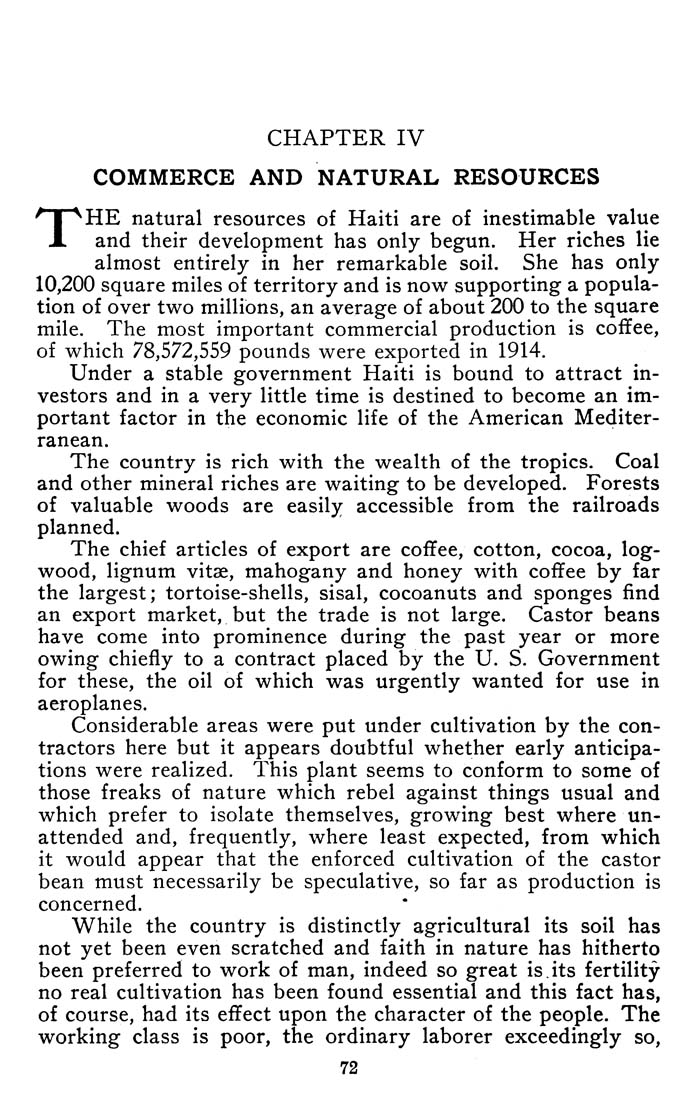CHAPTER IV
COMMERCE AND NATURAL RESOURCES
THE natural resources of Haiti are of inestimable value
and their development has only begun. Her riches lie
almost entirely in her remarkable soil. She has only
10,200 square miles of territory and is now supporting a popula¬
tion of over two millions, an average of about 200 to the square
mile. The most important commercial production is coffee,
of which 78,572,559 pounds were exported in 1914.
Under a stable government Haiti is bound to attract in¬
vestors and in a very little time is destined to become an im¬
portant factor in the economic life of the American Mediter¬
ranean.
The country is rich with the wealth of the tropics. Coal
and other mineral riches are waiting to be developed. Forests
of valuable woods are easily accessible from the railroads
planned.
The chief articles of export are coffee, cotton, cocoa, log¬
wood, lignum vitse, mahogany and honey with coffee by far
the largest; tortoise-shells, sisal, cocoanuts and sponges find
an export market, but the trade is not large. Castor beans
have come into prominence during the past year or more
owing chiefly to a contract placed by the U. S. Government
for these, the oil of which was urgently wanted for use in
aeroplanes.
Considerable areas were put under cultivation by the con¬
tractors here but it appears doubtful whether early anticipa¬
tions were realized. This plant seems to conform to some of
those freaks of nature which rebel against things usual and
which prefer to isolate themselves, growing best where un¬
attended and, frequently, where least expected, from which
it would appear that the enforced cultivation of the castor
bean must necessarily be speculative, so far as production is
concerned.
While the country is distinctly agricultural its soil has
not yet been even scratched and faith in nature has hitherto
been preferred to work of man, indeed so great is.its fertility
no real cultivation has been found essential and this fact has,
of course, had its effect upon the character of the people. The
working class is poor, the ordinary laborer exceedingly so,
72
|








